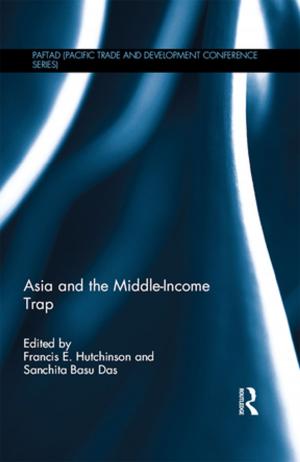English Gentlemen and World Soccer
Corinthians, Amateurism and the Global Game
Nonfiction, History, Modern| Author: | Chris Bolsmann, Dilwyn Porter | ISBN: | 9781317143079 |
| Publisher: | Taylor and Francis | Publication: | April 19, 2018 |
| Imprint: | Routledge | Language: | English |
| Author: | Chris Bolsmann, Dilwyn Porter |
| ISBN: | 9781317143079 |
| Publisher: | Taylor and Francis |
| Publication: | April 19, 2018 |
| Imprint: | Routledge |
| Language: | English |
The significance of the Corinthians Football Club, founded in 1882, has been widely acknowledged by historians of football and by sports historians generally. As a ’super club’ comprising the best amateur talent available they were an important formative influence on football in Britain from the 1880s to the 1930s. As a touring club - they first travelled to South Africa in 1897 and made regular forays into Europe and also to Canada, the United States and Brazil - they were the self-proclaimed standard bearers for gentlemanly values in sport.
Indeed for many years they were most famous football club in the world, drawing huge crowds and helping to ensure that the version of football emanating from the English public schools and universities in the mid-nineteenth century became a global game. Though their playing strength and influence waned after the First World War, they remained a significant force through to 1939, upholding ’true blue’ amateurism at a time when football was increasingly associated with professionalism and seen as a branch of commercial entertainment.
Whilst much has been written about the Corinthians, mainly by club insiders, this is the first complete scholarly history to cover their activities both in England and in other parts of the world. It critically reassesses the club’s role in the development of football and fills a gap in existing literature on the relationship between the progress of the game in England and globally. Most crucially, the book re-examines the sporting ideology of gentlemanly amateurism within the context of late-nineteenth century and early-twentieth century society.
The significance of the Corinthians Football Club, founded in 1882, has been widely acknowledged by historians of football and by sports historians generally. As a ’super club’ comprising the best amateur talent available they were an important formative influence on football in Britain from the 1880s to the 1930s. As a touring club - they first travelled to South Africa in 1897 and made regular forays into Europe and also to Canada, the United States and Brazil - they were the self-proclaimed standard bearers for gentlemanly values in sport.
Indeed for many years they were most famous football club in the world, drawing huge crowds and helping to ensure that the version of football emanating from the English public schools and universities in the mid-nineteenth century became a global game. Though their playing strength and influence waned after the First World War, they remained a significant force through to 1939, upholding ’true blue’ amateurism at a time when football was increasingly associated with professionalism and seen as a branch of commercial entertainment.
Whilst much has been written about the Corinthians, mainly by club insiders, this is the first complete scholarly history to cover their activities both in England and in other parts of the world. It critically reassesses the club’s role in the development of football and fills a gap in existing literature on the relationship between the progress of the game in England and globally. Most crucially, the book re-examines the sporting ideology of gentlemanly amateurism within the context of late-nineteenth century and early-twentieth century society.















